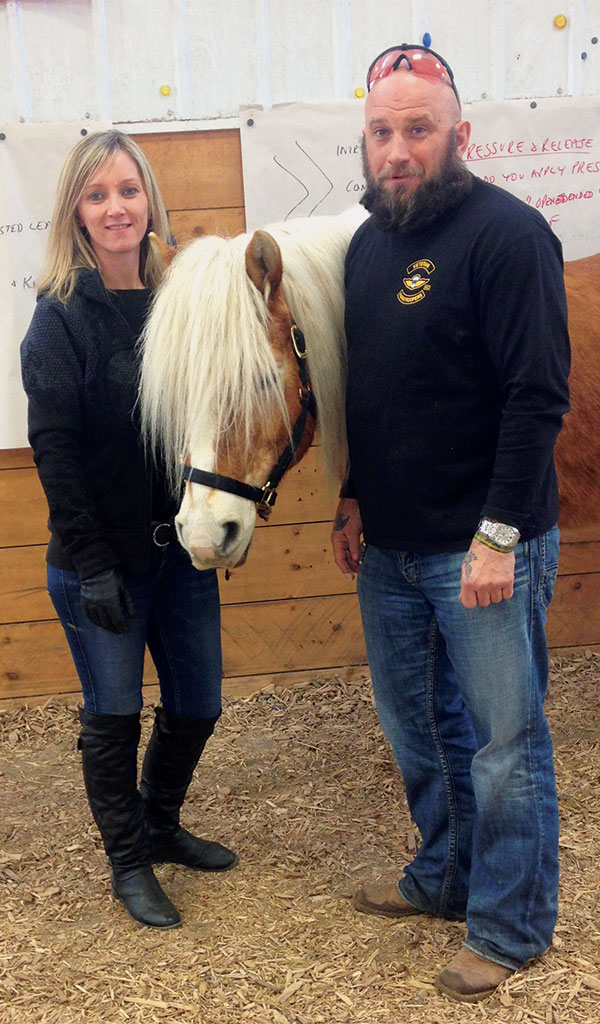
On a ranch in the foothills of the Rockies just outside of Rocky Mountain House, Alta., the co-founders of Can Praxis, Steve Critchley, a former veteran and renowned mediator heavily involved in conflict resolution throughout his career, and psychologist, Jim Marland, are helping veterans affected by post-traumatic stress disorder (PTSD) and their families regain control of their lives.
The three-phase intensive program, a combination of classroom theory and practice, uses the calm and gentle disposition of Haflinger horses to open the door to overcoming conflict and crisis. Re-learning to communicate is the key to the program. “If you’re not talking, you’re going to die,” says Critchley. In each pair they’ve worked with, he said, they see at least one suicidal veteran and are seeing more suicidal spouses.
The horse acts as a mirror, picking up on the veteran’s behaviour and reflecting it back. “Horses are very intuitive,” says Monica Jean who participated in all three phases of the Equine Assisted Learning program with her husband. “Relationship isn’t going to happen if you’re angry, mad, resentful, hostile. Horses won’t want to spend time with you,” she says. The respect and trust that is re-learned in the horse arena is taken back into the home and put into continuous practice.
Diagnosed in 1999, Shaun Maher and his determined wife Polly had tried many different types of treatments over the years, including medications. For them, the revelation came in the arena on the third day. “He could see how his behaviour was making us feel,” she says. “Horses are fast teachers. They are right there. If you try to hide something, they are going to read it on you,” says Polly.
For Polly’s husband Shaun, who was initially afraid of horses, the most significant learning was to model the behaviour you want to see in others, especially his children. What was profound for Polly was that she hadn’t looked at herself as a peer in PTSD. “We work more as a team now,” she says.
Critchley and Marland knocked on a lot of doors before they caught the attention of Wounded Warriors, a national charity that runs a number of programs for veterans. Their success has been phenomenal: 97 per cent of their participants experience immediate relief of symptoms and over 75 per cent have long-term relief. Of the 160 couples they have treated, 140 are still together.
It is tough work. “We are not into chasing rainbows or hugging unicorns,” said Critchley. “PTSD is evil, insidious and potentially a killer. Marland adds, “We provide the map and compass for people in conflict to find their way out in a strategic manner.”
“It saved our marriage,” says Monica. “It really did. We actually are in love again.”
